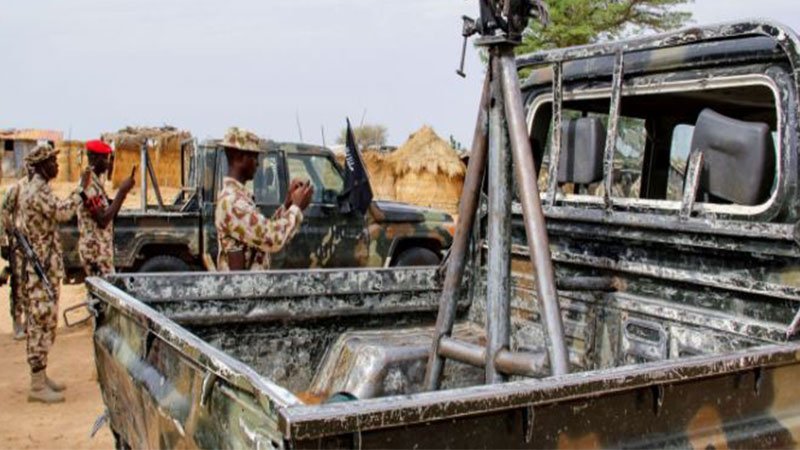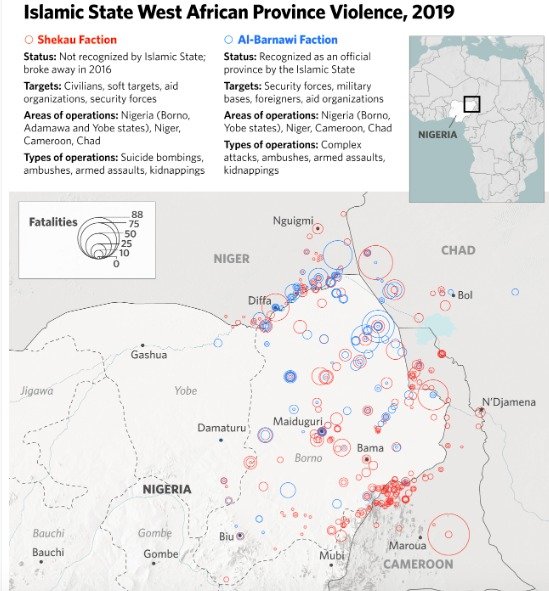
(AUDU MARTE/AFP/Getty Images) Soldiers take snapshots of vehicles allegedly belonging to ISWAP in Baga, Nigeria, on Aug. 2, 2019.
HIGHLIGHTS
- After a recent attack in Nigeria, ISWAP militants reportedly roamed around a town for several hours and faced no opposition from security forces.
- A 2019 U.N. report said one faction commands up to 3,000 fighters, has improved its financial outlook and has developed a drone capability.
- The army’s move to larger bases may help stem the loss of men, weapons and equipment, but it will only strengthen ISWAP in the long run.
Militants from the Islamic State West African Province (ISWAP) overran a Nigerian military base in the northeastern town of Gubio on Sept. 28, killing soldiers and seizing materiel. While the attack itself was notable, given the manpower it takes to storm a base, the aftermath was even more telling of the current state of security in Nigeria’s northeast. The militants reportedly roamed around the town for several hours and faced no opposition from security forces. Days later, the army charged 22 soldiers with desertion for abandoning their posts during the attack. This assault was part of the latest surge in the decadelong insurgency waged by ISWAP, which was previously known as Boko Haram.

The Two Camps
ISWAP is not a monolithic group. It split into two factions — one loyal to Abu Musab al-Barnawi and the other to Abubakar Shekau — after the Islamic State core appointed al-Barnawi as leader in August 2016 and Shekau refused to recognize the decision. Both continue to claim the mantle of ISWAP, but they are not unified, do not coordinate attacks and have ideological differences. But both are fiercely opposed to the Nigerian government, carry out persistent attacks and are intent on carving out a separate state within Nigeria. Unlike rival jihadist militants in other arenas, such as al Qaeda in the Arabian Peninsula and the Islamic State in Yemen, the Shekau and al-Barnawi factions don’t attack each other.
The al-Barnawi faction primarily operates throughout Borno state, particularly around the Lake Chad area, and it uses it to launch attacks into neighboring provinces in northeastern Nigeria, as well as into Cameroon, Chad and Niger. According to a 2019 U.N. report, the group commands up to 3,000 fighters, has improved its financial outlook and has developed a drone capability. It focuses on attacking military targets and, in an attempt to cultivate local support, largely avoids suicide bombings and attacks on local residents and houses of worship. However, the group actively targets foreigners and groups such as nongovernmental and aid organizations, especially those from Western countries. Its militants ambushed a convoy of aid workers in July 2019, killed one, kidnapped several others and then executed one of the aid workers in September.
SOURCE: Worldview | Stratfor



